Assemble – PPD presentation [finished]
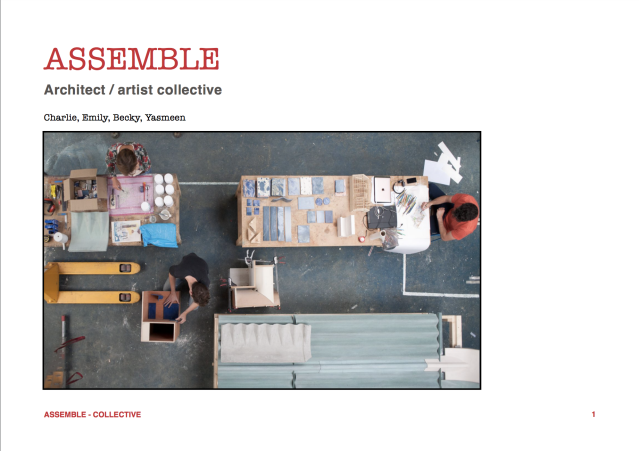
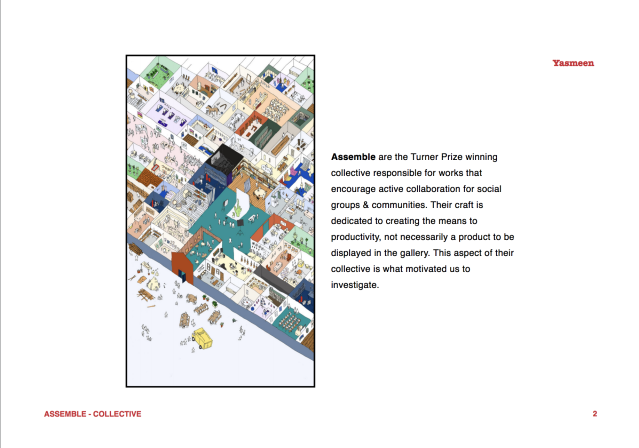
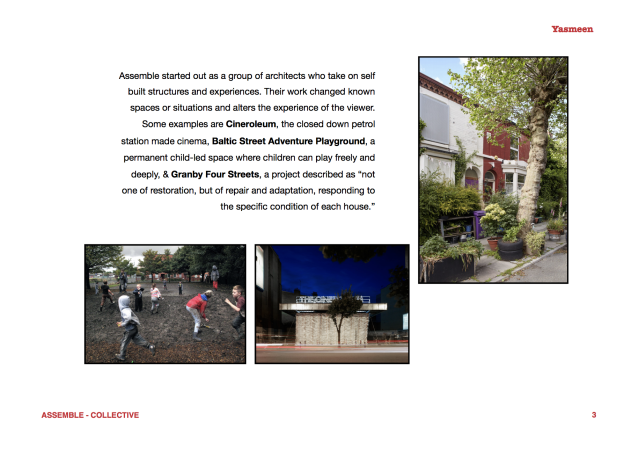
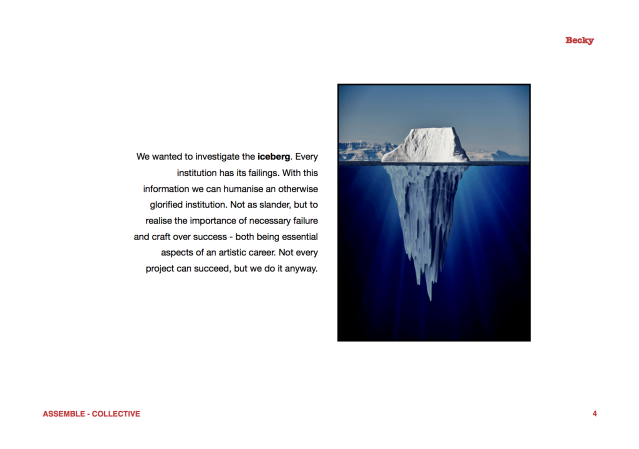
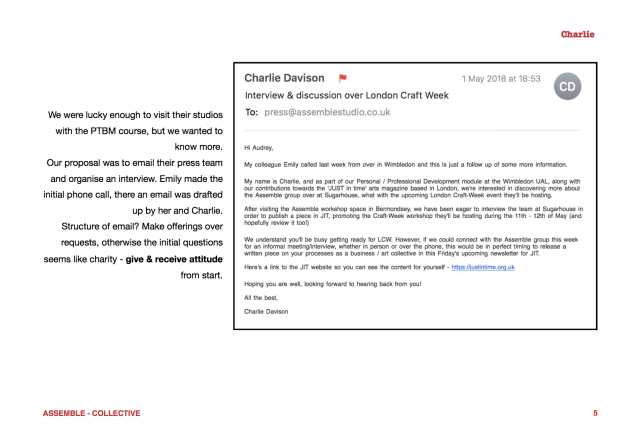
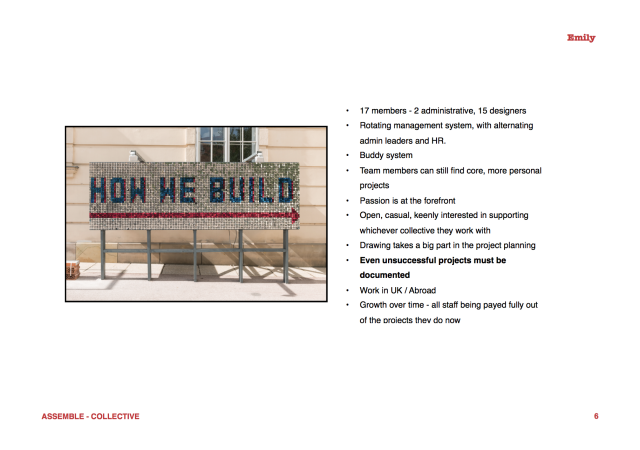
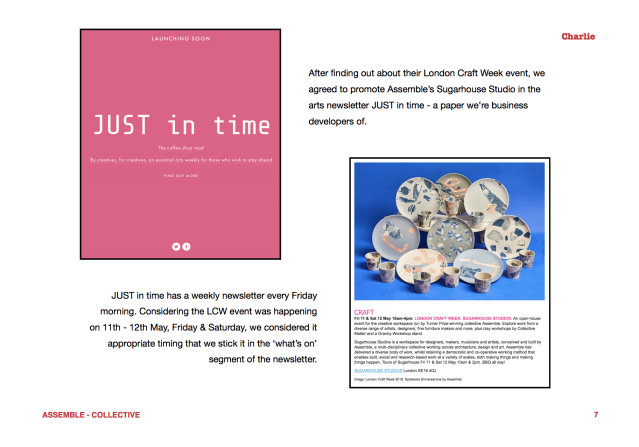
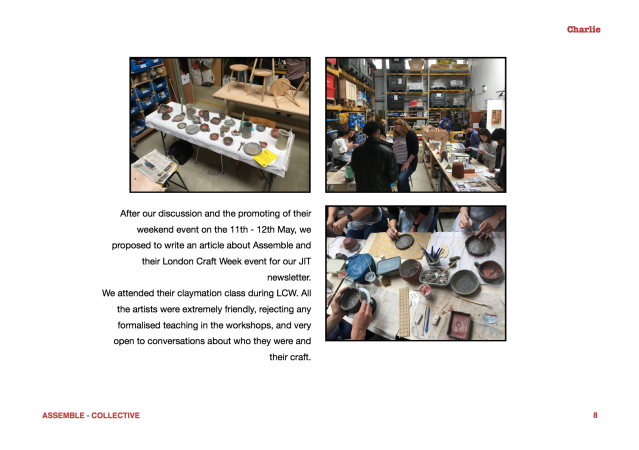
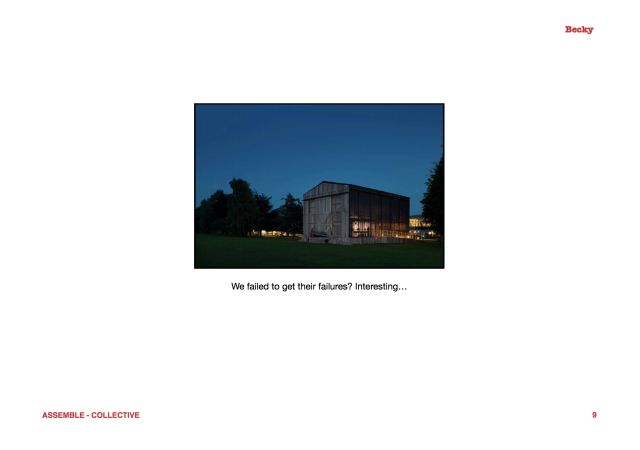

My area to research and speak about was a bit of history on assemble, these are my notes for the presentation:
“With this new commission at Seven Sisters Underground station, we engaged with the community to restore a sense of friendliness in the area, supported by developing new skills through workshops for local residents.”
We are looking to research further into Assemble Collective at Sugarhouse Studios in Bermondsey.
After the PPD field trip we all expressed a joint interest in the group and wanted to explore a bit further. We organised an informal interview with pre planned questions to ask, allowing for natural conversation to flow also.

Charlie lead a lot of the emails, due to his experience communicating with people in the arts, but also in a professional environment.
Here is the email correspondence for organising the interviews with a member of Assemble.
We wanted to approach them with a mutual benefit, and so suggested reviewing them for ‘Just in Time’ Magazine, which Charlie introduced us to and got us involved it. This approach meant that it was more appealing for them as opposed to them just doing us a favour.
For the interview we decided against all of us intending, as a 4:1 interview could seem a bit intimidating. We went with three of us, to make it less formal, all contributing and asking appropriate questions. As we all have naturally flowing conversational skills as a ground, this made the interview smooth, as we are able to bounce from each other and can give leeway to allow everyone to speak.
We attended their London Craft Week event which have us the opportunity to speak in a more casual environment and mix with others in the collective also. This gave us a better insight into the social aspect of the collective and really appreciate the facilities available.
What LUX does:
Artists do lots of things and can have a broadened practice. Folio-careers are becoming more common meaning you can do more than one thing in your life. Unfinished work and experimentation is just as valuable if not more than the finished piece and allows you to reflect and develop further.
Tate Learning:
“Supporting young people and teachers to learn about themselves and other through art”
“Not everything that is faced can be changed….but nothing can be changed until it is faced” -James Baldwin
Art Programmes have active audiences, art and artists. The aim is to invite conversation and welcome people’s different values and backgrounds so we can learn and support through each other. There was a key focus on not stopping learning as an adult, we can learn from young voices and children too. It is very dangerous to think you know everything.
Assemble started out as a group of architects who take on self built structures and experiences. They are known to make use out of unwanted or abandoned spaces. Their work is very experience based and relies on the audience to function. Their work changed known spaces or situations and alters the experience of the viewer. An example of this is their Cineroleum which was hosted in an old petrol station. This is a perfect example of making work based on the space first. It was the petrol station that was the stimulus for this, as opposed to the idea and working with it. Much of the material used for this was recycled or found and it is this ‘make do and mend’ attitude that has interested me. At the end of every viewing, they would lift the curtain behind the screen and be both revealed and reveal the busy street to the audience. This experience almost isolates the viewer from the reality of the space that they are in, only to bring them back to it afterwards. It breaks up the environment into different sections and allows the audience to then make the connections themselves.
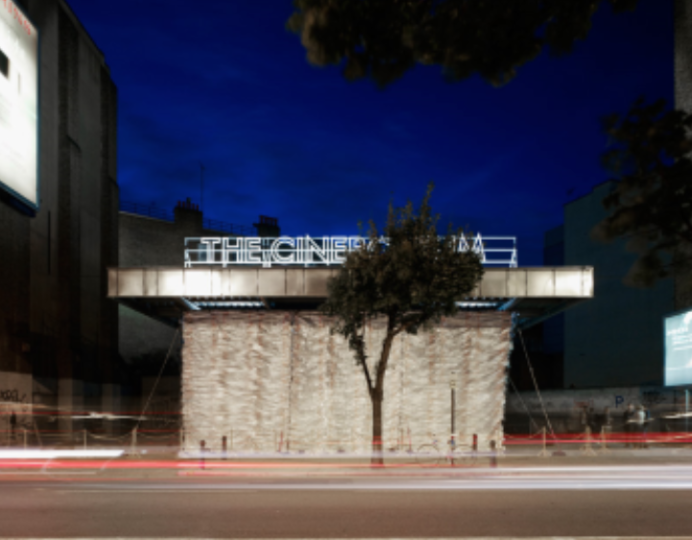
“Complicité is an international touring theatre company, based in London. Founded in 1983 by Annabel Arden, Fiona Gordon, Marcello Magni and Simon McBurney, the Company is now led by Artistic Director McBurney OBE and Producer Judith Dimant MBE.”
We found the background and working methods of Complicité very interesting and were keen to delve further to learn more about how they initiate their projects and working. They have a key focus on the collaboration process and free form of mediums. They experiment a lot with performance and theatre experiences and are also actively working with outside communities and have their ‘Creative Learning programme’ in schools and colleges.
We drafted up an email together, telling them a bit about us and asking to review one of their events:
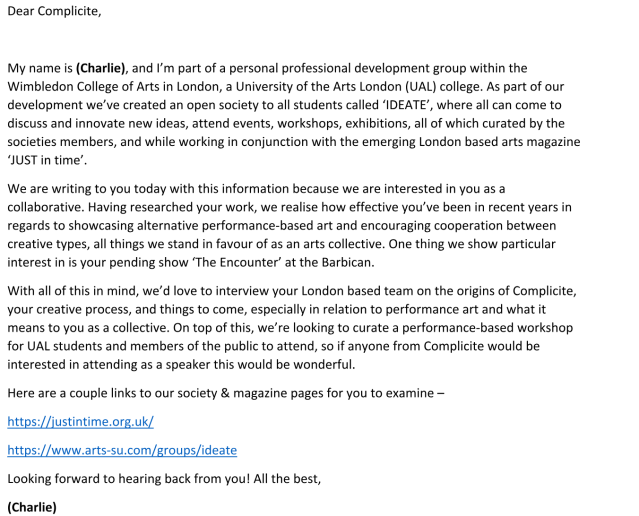
As we have all been a part of organising a new idea based society, we also included this in our approach of contacting them.
We sent lots of chasing up emails but did not hear from them, as we were conscious of deadlines we cut our losses and moved on.